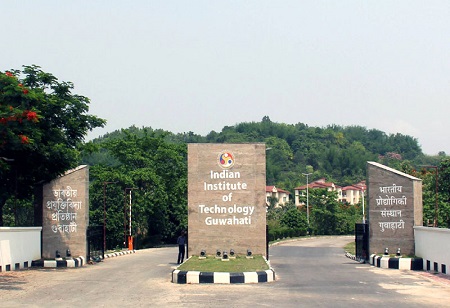IIT Guwahati Develops Novel Method for Creating Biofuels
 Researchers at the Indian Institute of Technology (IIT) Guwahati have developed an advanced biological method to convert methane and carbon dioxide into cleaner biofuels using methanotrophic bacteria, officials said on Monday. This innovative approach represents a significant leap toward sustainable energy solutions and climate change mitigation, they said.
Researchers at the Indian Institute of Technology (IIT) Guwahati have developed an advanced biological method to convert methane and carbon dioxide into cleaner biofuels using methanotrophic bacteria, officials said on Monday. This innovative approach represents a significant leap toward sustainable energy solutions and climate change mitigation, they said.
The research, published in Fuel, a leading journal by Elsevier, addresses two critical global challenges--the harmful environmental impact of greenhouse gases and the depletion of fossil fuel reserves.
Debasish Das, professor in the Department of Biosciences and Bioengineering, IIT Guwahati, a renowed education institution, explained that the greenhouse gas methane is 27 to 30 times more potent than carbon dioxide and is a significant contributor to global warming.
"While turning methane and carbon dioxide into liquid fuels can reduce emissions and provide renewable energy, existing chemical methods are energy-intensive, expensive, and produce toxic by-products, limiting their scalability," he said.
Das said that their team has developed a fully biological process that uses a type of methanotrophic bacteria to convert methane and carbon dioxide into bio-methanol under mild operating conditions.
"Unlike traditional chemical methods, this process eliminates the need for expensive catalysts, avoids toxic by-products, and operates in a more energy-efficient manner," the professor said.
The researchers claimed that the method achieved upto 87 per cent reduction in carbon monoxide, hydrocarbons, hydrogen sulphide and smoke emissions.

